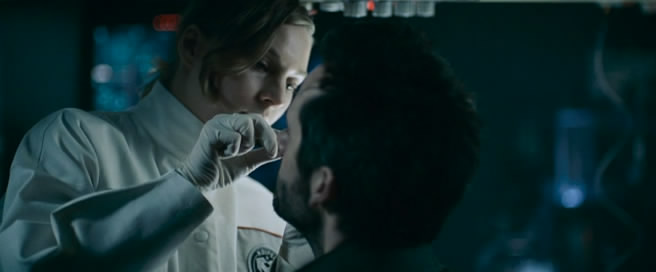Cargo
Trip to the world of dreams
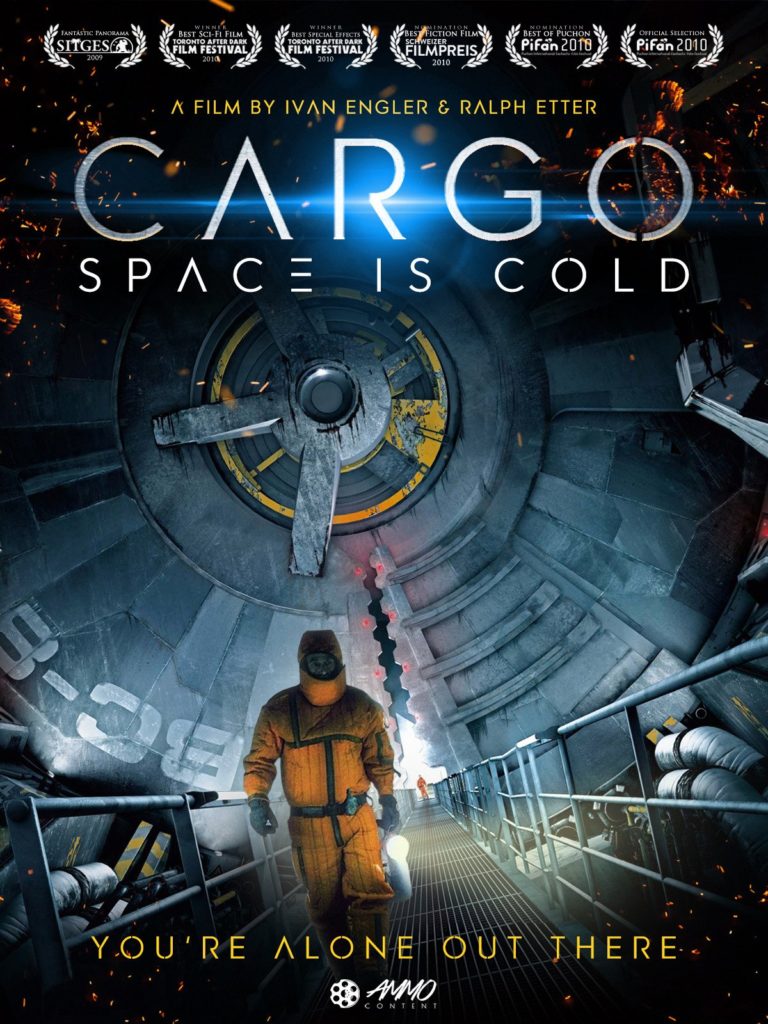
Despite being from the generation that lived the heyday of street cinema, I have always adapted myself to the evolution of visual entertainment, and I have witnessed fantastic technological leaps in this area. One of the wonderful aspects of the internet is precisely that it allows access to different and off-market films, from the most varied origins. One example is the interesting Swiss science fiction “Cargo – Space is Cold” (“Cargo”, CH, 2009).
In the year 2270 the Earth is completely ravaged by pests and pollution, so the entire surviving population lives in orbital stations. The only successful colony outside Earth is Rhea, but only wealthy people can afford live there.
Doctor Laura Portmann (Anna Katharina Schwabroh) dreams of moving to Rhea, where her sister lives already, but needs to save money to do so. They keep in touch, but messages take years to arrive.
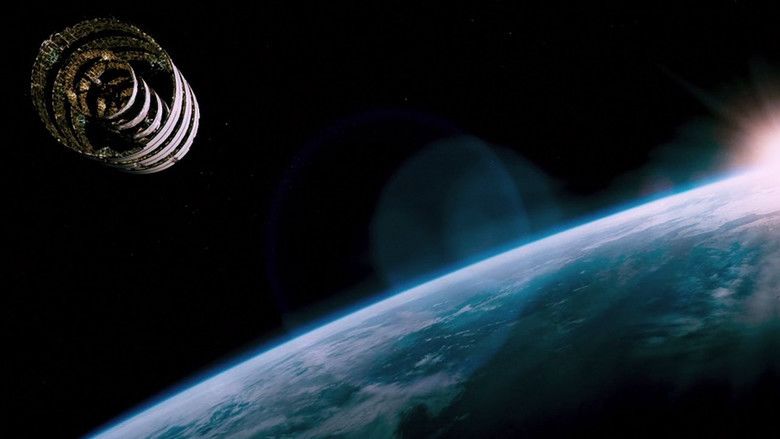
To fulfill her dream, Laura embarks on the Kassandra space freighter that will carry building materials to station 42, orbiting planet RH278, on a trip that will take four years to go and another four to return. Despite being a gigantic ship, the crew is very small. Besides Commander Pierre Lacroix (Pierre Semler) and Laura, there are only five other people.
At the last minute, an extra crew member is added. Due to the actions of a terrorist group against space colonization, each spacecraft must have a security officer on board. In Kassandra’s case, the officer is Samuel Decker (Martin Rapold).
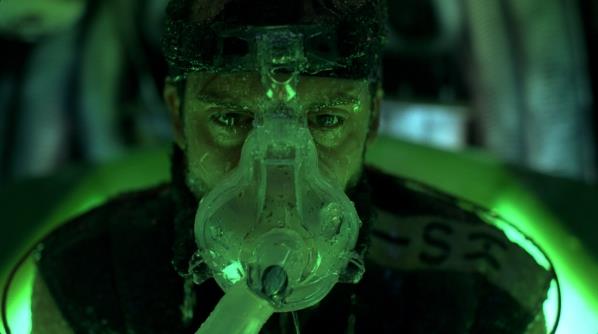
Along the way, most of the crew remains in artificial hibernation, and only one crew member is awake, in a shift of eight months each. Towards the end of the trip, it’s Laura’s turn, who basically maintains a supervision routine, since the ship is fully automated.
One day this routine is broken when she discovers that the gate to the cargo hold had been opened. Security officer Decker is automatically awakened from hibernation, and soon he and Laura decide to wake Commander Lacroix.
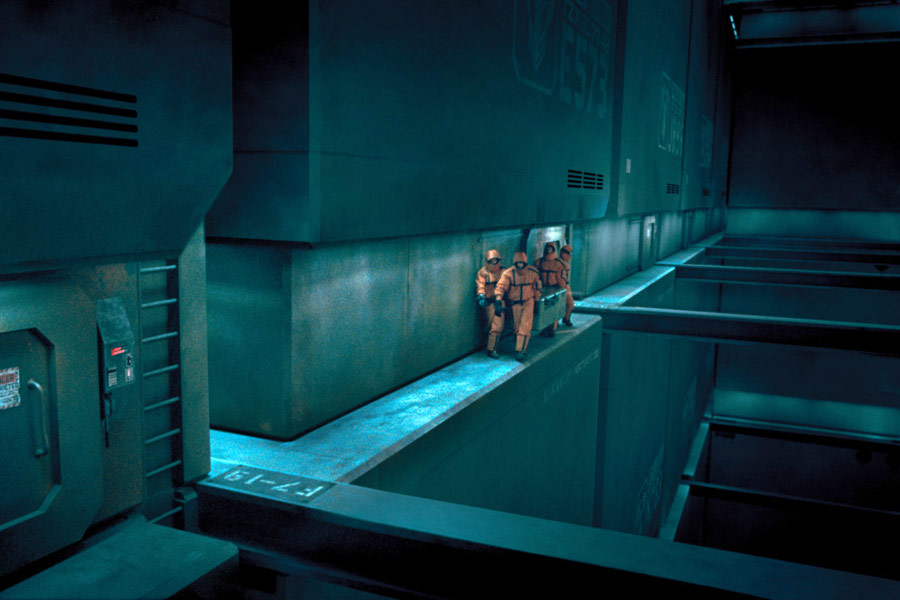
When they decide to investigate the cargo hold, Lacroix falls from a great height and dies. They decide to wake up the rest of the crew, as they suspect the commander was murdered by a stowaway.
First Officer Anna Lindbergh (Regula Grauwiller) takes charge, in a climate of widespread suspicion, as it is hard to believe that anyone would have managed to infiltrate Kassandra and remain awake during four years.
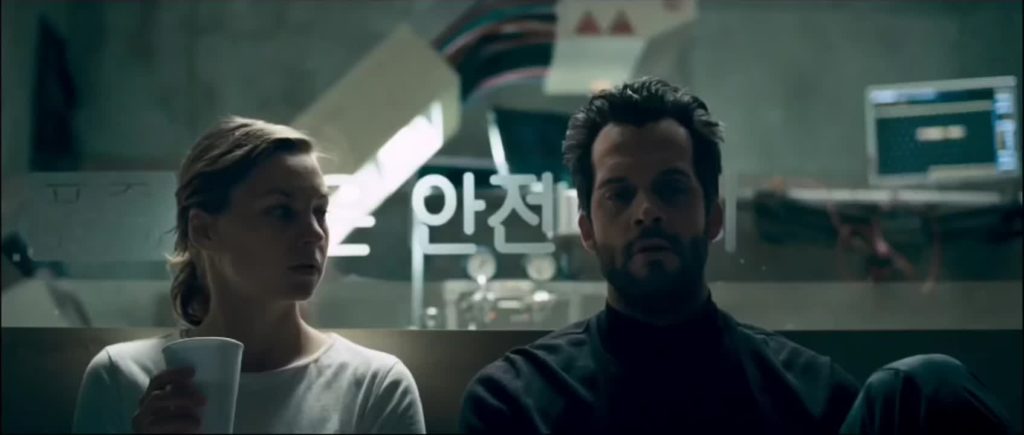
The situation gets even stranger when Laura and Decker inspect the cargo hold and discover that instead of building materials, the cargo consisted of containers filled with people in artificial hibernation. They remove one of the sarcophagi where a girl was, and upon examining her, Laura discovers an implant in her spine.
From then on, the situation is very confused, as it becomes evident that many lies are being told to the Earth’s population, not only about the situation of the planet itself, but also about the paradisiacal Rhea. The most important questions seem to be what is the secret of this human cargo and where are they going anyway?
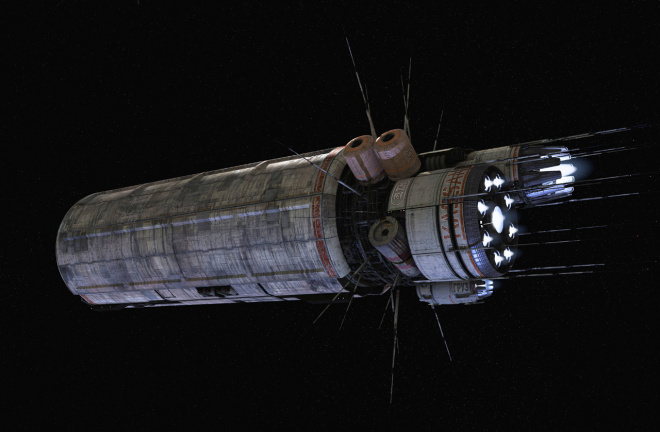
When watching the film, the viewer will find elements that refer to “Alien” (USA, 1979), “2001: A Space Odyssey” (USA, 1968) and even “The Matrix” (USA, 1999). So what’s new?
I have often called attention to the fact that Hollywood movies look like prefabricated things, where originality seems to be limited by commercial interests. European films, however, take different approaches, bolder and less restricted. In the case of “Cargo – Space is Cold”, it is the first science-fiction film made in Switzerland, and it is impressive what was achieved with a very low budget, just five million Swiss francs (less than six million american dollars).
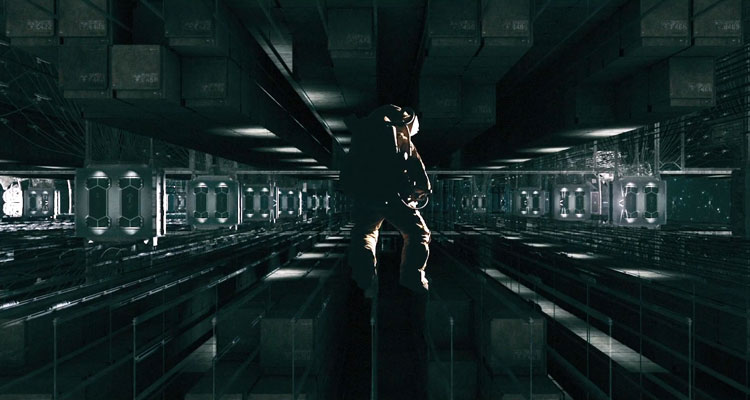
The movie, which took eight years to complete, has an impressive design, and many sets were made digitally, especially the cargo hold where several scenes take place. Another curious thing is the female role in the film, another aspect quite different from Hollywood productions.
Interestingly, even though it was mostly made in Switzerland, the language spoken is standard German, rather than the Swiss equivalent. Furthermore, although most of the cast is Swiss, the main roles were with German actors. That seems to have been the film’s main commercial concession.
Although not innovative, “Cargo – Space is Cold” is an interesting film, mainly because of the approach to the theme of utopia versus dystopia, in addition to the veiled interests of those who have the power – and want to keep it forever.

